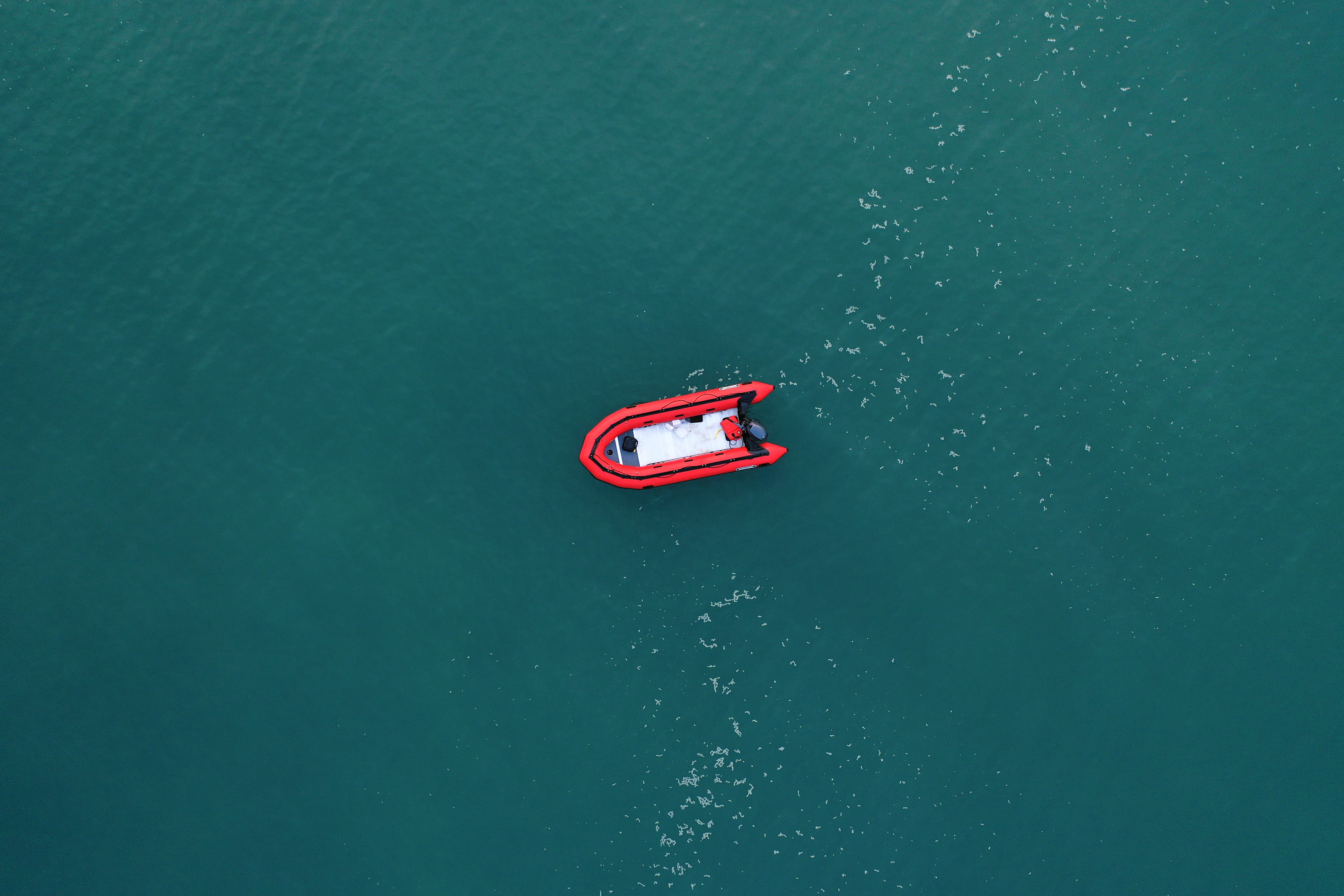‘Of course we are scared but we have no choice’: Why family of refugees is risking everything to cross Channel
Seeking refuge: It’s a notoriously dangerous trip, but asylum seekers are attempting to cross to Britain by boat in their thousands. In northern France, one family tells May Bulman what’s brought them to this – and why they’ll keep trying to reach the UK


Your support helps us to tell the story
From reproductive rights to climate change to Big Tech, The Independent is on the ground when the story is developing. Whether it's investigating the financials of Elon Musk's pro-Trump PAC or producing our latest documentary, 'The A Word', which shines a light on the American women fighting for reproductive rights, we know how important it is to parse out the facts from the messaging.
At such a critical moment in US history, we need reporters on the ground. Your donation allows us to keep sending journalists to speak to both sides of the story.
The Independent is trusted by Americans across the entire political spectrum. And unlike many other quality news outlets, we choose not to lock Americans out of our reporting and analysis with paywalls. We believe quality journalism should be available to everyone, paid for by those who can afford it.
Your support makes all the difference.Ramin, a seven-year-old disabled boy, cuddles up to his mother in the back of a minivan, whimpering. His weary-faced mother, Baxtawar, kisses him on the forehead, while his sister Nuha, 11, sits bleary-eyed on his other side, blinking out of the window into the morning light. Their father, Mohamed, sits in the front passenger seat, leaning his head against the window dejectedly.
The Kurdish family have just been picked up by a charity after spending the night trying to cross the Channel by boat. It isn’t the first time they’ve tried the notoriously dangerous trip from northern France to the UK, and it will not be the last. This time the issue was a broken engine, which left them having to walk for two-and-a-half hours from the shore to their camp. They slept for an hour or so, before police evacuated the area and took their tent.
Almost 7,000 asylum seekers are believed to have made the journey to the UK by boat so far this year. Last month, when Mohamed, Baxtawar and their children made their attempts, was the busiest month yet. The Independent spoke to the family as part of a series funded by the publication’s Supporter Programme.
“Of course we are scared when we try – a five-hour sea crossing is a big risk,” says Mohamed, 40, about an hour later as the family eats breakfast provided by refugee project Maison Sesame, a house providing respite for refugees. “But we need to go to England to find a new life. It’s worth it for us.”
The former baker tears a piece of bread into chunks for his son to eat. Ramin sits in a high chair in a daze, visibly exhausted, while his sister nibbles sleepily into a brioche bun and Baxtawar sips tea.
For five years, the family-of-four has been searching for a better life, to match the one they were forced to leave in Iraq in 2015, when they came under threat from extremist groups. They had been happy, says Mohamed, but suddenly they had to flee with little more than the clothes on their backs, their children then aged just six and two.
They travelled to Turkey and stayed there, in the hope that the situation at home would improve – but it did not. Life in Turkey was not easy, and after three months they decided they had no choice but to head to Europe, paying the equivalent of £7,700 to smugglers to board a boat and attempt the perilous sea crossing to Greece.
“It wasn’t easy, the moment we boarded that boat,” says Mohamed. “Close to the Greek border, the Turkish authorities came and were very aggressive. They tried to reverse the boat, but the driver continued. My children were crying to me saying they didn’t want to die in the sea. My wife said it was too dangerous, that the police would hurt us. It was a huge risk to take.”
How to support more truly independent investigations
This article was funded by our supporters. If you would like to see more of this important work, please make a contribution
The family eventually arrived safely on Greek shores, and were taken to a police station and held there for a night. The following morning they were released and spent a night in a hotel in Athens. They had initially planned to claim asylum in Greece, but quickly changed their minds.
“We saw that Greece was a country like ours. There was no safety or security for us there,” says Baxtawar, 33, clutching her mug. “It wasn’t a country that could manage refugees. We decided we would leave because it was not going to give us a normal life. We left with other refugees to cross the open border to Macedonia.”
The family was among the thousands of asylum seekers to travel through the Balkan route in 2015. On a series of buses, trains and many miles on foot, they snaked through Macedonia, Serbia, Croatia and Slovenia – a journey riddled with challenges – in pursuit of safety.
“It was so difficult, especially with small children,” says Mohamed, furrowing his brow as he remembers. “Sometimes there were fights on the way, or police hit refugees. Sometimes we would make a fire to keep warm, and the police would hit us and say you mustn’t do this, even thought it was very cold.
“We always slept on the floor, either on the train or on the ground. Every time we got on a bus or a train, we bought tickets, but there wasn’t space. There were many other refugees. We all had to crouch on the floor.”
Mohamed gestures towards his children, who are both slumped sleepily in their chairs. “They need to sleep,” he says, gently lifting Ramin from his chair and taking Nuha by the hand before leading them up to bed in Maison Sesame, where they will stay for several nights before returning to their makeshift encampment. Mohamed soon returns and the story continues.
After five days of travelling through the Balkan route, the family arrived in Germany. They were told by police that they must submit their fingerprints and claim asylum, and they did, in the hope that they could build a new life there and it could become their home. But they soon faced difficulties.
They were placed by the authorities in shared accommodation in the top floor of an apartment block without a lift, making it difficult to take Ramin – who struggles to walk due to his disability – up and down the stairs. They asked the German interior ministry whether they could change their accommodation, but were told they could not.
It took a long time for the family to receive their asylum decision, during which Mohamed and Baxtawar couldn’t work. They were eventually granted asylum, but the only job Mohamed could find was in a bakery two hours from the small village where they had been placed.
The children started school and they were happy to be back in education, but their school was an hour away on a bus, making it difficult – particularly for Ramin. The flat the family was placed in was shared with around 20 other families, and they had to share a bathroom with others. A lack of translators made it difficult to communicate with essential services, including healthcare and the local authorities.
“Germany was not an easy country for us. We didn’t know anyone there. Getting residency was very difficult, and it was hard to find work,” says Mohamed. “I worked all day, every day for two years to try to move to the city, but the authorities didn’t accept our request to move.
“We kept trying to advance our lives but we couldn’t. It was like being in prison. We had escaped our country to find freedom, but we didn’t find it in Germany.”
In August, the family left Germany. It was a difficult decision for them because – as challenging as things were there – it was a guaranteed place of safety and their children were receiving an education. But after five years of trying and failing to establish a stable life, they chose to give up and head for the UK.
“We have cousins in England, and we have lots of friends there from our community. Our friends and family there can help us with our disabled child,” says Baxtawar, with hope in her eyes. “The language is easier to learn. We will be more at ease there.”
After taking a train from Germany to Paris, the family travelled by bus to Dunkirk, a region next to Calais, and from where many asylum seekers – including a large number of families – sleep rough and routinely attempt to reach Dover, usually with the help of people smugglers, either in small boats across the Channel or by stowing away in lorries heading towards the Eurotunnel.
For a family of four, the cost of crossing is said to range from £6,000 to £7,000 in a boat, or around £10,000 in a lorry – and the sum is paid to the smuggling network only once the family reaches the UK’s shores. While making these attempts, families and individuals tend to live in makeshift encampments in Grande-Synthe, a suburb of the city of Dunkirk, in the hope of one day successfully crossing and claiming asylum in Britain.
Mohamed and his family have already tried to cross six times during the three weeks that they have been in France, four times by boat – the fourth being this morning – and twice by lorry.
Their first attempt to cross ended when, early on in the journey, water started to enter the boat they were in and they were forced to turn back; the second was scuppered when police confiscated the boat and life jackets; and the third and fourth failed when the boat’s motor broke down – demonstrating the risks these journeys carry.
In a bid to deter people from attempting the dangerous crossing, French police are increasingly carrying out early morning evacuations in the informal camps where asylum seekers live and sleep, often confiscating tents and belongings, including ID papers and other personal documents.
But despite the challenges that come with trying to reach the UK via this unauthorised route, the family are unwavering in their determination to succeed in their pursuit of getting to Britain.
“We are not happy or comfortable doing this, look at us,” says Mohamed, gesturing towards the two ragged tarpaulin bags on the floor beside them which contain all of the family’s worldly possessions. “It tires us out, especially the children. They’re only small.”
But leaning back on his chair wearily, he adds: “We didn’t expect it to be this hard. In Kurdistan, we were happy, and we hoped that we could build that life again. We tried other countries, and it didn’t work out. So we will try England as well, to find a new life. The quicker we can get there, the quicker we can find a normal life. It’s worth it for us.”
This article was funded by our supporters. If you would like to see more of this important work, please make a contribution


Join our commenting forum
Join thought-provoking conversations, follow other Independent readers and see their replies
Comments